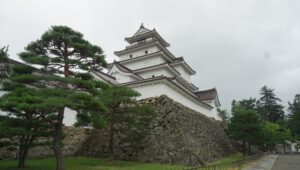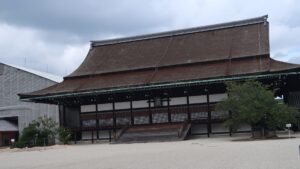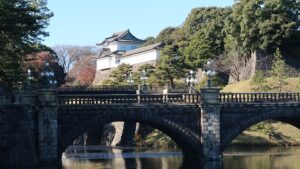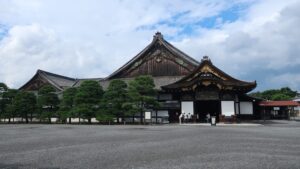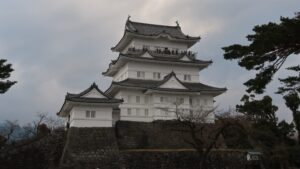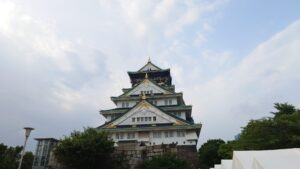Aizu-Wakamatsu Castle (Tsuruga castle)
Area: Fukushima
Aizu Wakamatsu Castle is located in the center of the Aizu basin, one of the most important palces in north east Japan, at crossroads to Kōriyama to the north and Yonezawa to the east and Murakami on the Sea of Japan coast.
Imperial Palace Kyoto
Area: Kyoto
The history of Kyoto Imperial palace started from 794 when Emperor Kanmu (50th emperor) moved the capital to Heian-kyo (Kyoto). Kyoto Imperial palace was residence of the Japanese emperors until 1869 when Emperor Meiji (122th emperor) moved to Tokyo.
Imperial Palace Tokyo (Former Edo castle)
Area: Tokyo
It was the residence of the shōgun and location of the shogunate, and also functioned as the military capital during the Edo period of Japanese history. After the resignation of the shōgun and the Meiji Restoration, it became the Tokyo Imperial Palace since 1869.
Nijo-jo Castle
Area: Kyoto
Celebration ceremony of the inauguration of the shogun for Ieyasu was operated in 1603.
Declaration of returning the authority to the Imperial Court by 15th Shogun Yoshinobu, was issued In 1867.
Odawara Castle
Area: Kanagawa
After the Battle of Odawara in 1590, Toyotomi Hideyoshi forced the surrender of the Odawara Hōjō, he awarded the holdings of the Odawara Hōjō to his leading general Tokugawa Ieyasu.
Osaka castle
Area: Osaka
This castle is one of Japan’s most famous landmarks and it played a major role in the unification of Japan during the sixteenth century of the Azuchi-Momoyama period. Osaka Castle was built by Toyotomi Hideyoshi on the place of Osaka Honganji Temple (Ishiyama Honganji Temple) after the fought against Nobunaga Oda,


